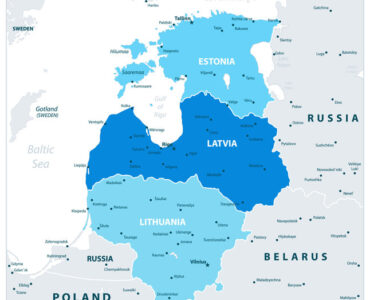North Korea and its leader, Kim Jong Un, are in the news today after President Trump initiated an impromptu meeting with the North Korean dictator in the DMZ. North Korea is shrouded in secrecy in just about all matters, including the translation industry. This post will try and shed some light on the state of the translation industry in North Korea. This information was obtained through an interview with a professional translator who used to work in North Korea and has relocated (defected?) to South Korea. For obvious reasons, this translator chose to remain anonymous.
In general, all dictatorships like North Korea control all media and communications very tightly. Translation is clearly a part of the communications chain and as such, it is very tightly regulated and controlled by the government.
Are there professional freelance translators in North Korea? How many?
There are professional translators in North Korea. The number of them is unknown, but as far as we know, they are communists and work for the government. If you search for freelance translators who live in North Korea on Proz, the leading directory of freelance translators, you will find 4-5 freelance translators. However, none of them have websites or a CV available and it is unclear whether these entries are real. So it appears that are no commercial freelance translators in North Korea.
Are there commercial translation companies in North Korea? How many?
There are no translation companies in North Korea. All North Korean companies are owned and controlled by the government.
Who provides language education to translators in North Korea?
Language training is controlled by the government. One of the main training centers for translators and interpreters is the Pyongyang University of Foreign Studies. As far as we know, this and other similar North Korean language schools accept nearly no foreign students.
Where do North Korean companies buy translation services from? Do they use South Korean translators?
North Korean companies do not buy translation services. The government supplies translation services to the companies which need them. So the answer is no, North Korea does not buy translation services from South Korea.
How do professional translators get paid? Can they use online payment (like Paypal)?
There is no access to online payment systems in North Korea. So in effect, North Korean translators can’t work for anyone outside of North Korea.
What languages are the most in demand in North Korean? What language pairs are most ordered?
English, Chinese, and Russian are the most in demand in North Korea. Courses of study in North Korean language schools are available in Chinese, Russian, Japanese, Hungarian, Arabic, Malay, Khmer, Thai, Lao, Persian, Hindi, Urdu, English, German, Bulgarian, Czech, Polish, French, Italian, Portuguese, Romanian, and Spanish.
Do translators in North Korea need a license to operate? Is the industry controlled by the government?
Every single industry is controlled by the government and all translations must go through the Foreign Languages Publishing House.
Do translators is North Korea have Internet and email access? Any restrictions?
Internet use in North Korea is allowed to very few people, with strict limitations on use.
Are there language differences between the language used in South and North Korea or is it exactly the same?
Since the two countries have been divided for 70 years, there are quite a few differences between the Korean used in South Korean and North Korean. North Korean is basically similar, but some words they use are completely different from that of South Koreans. Read more about that here.
Do translators in North Korea have access to MS Office and CAT tools, etc.?
Translators in North Korea do not use commercial software available to the world public. They use custom tools developed in North Korea.





